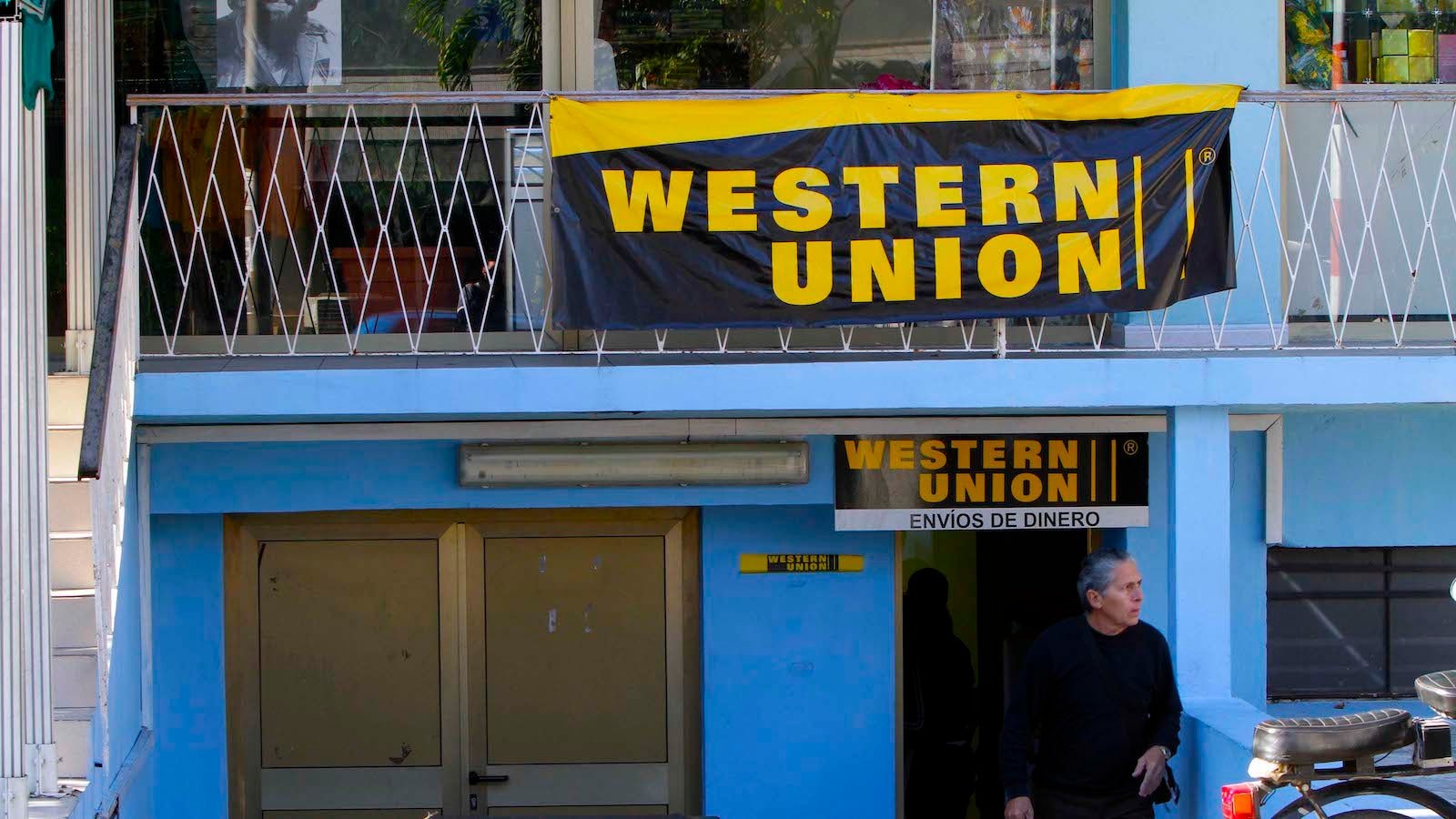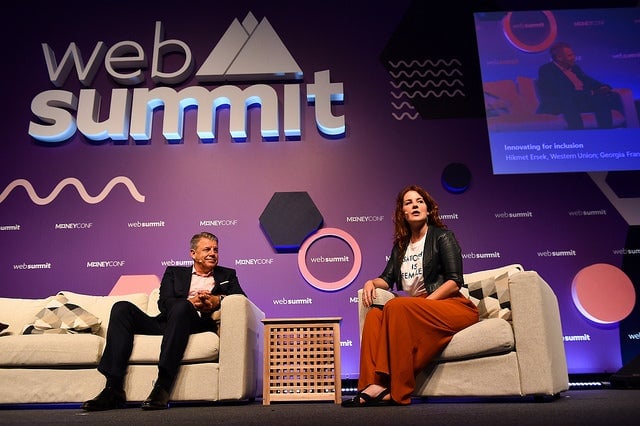In a world of borders, Western Union’s strategy is still immigrant-first
As more people move around the world seeking better opportunities, money has to become as mobile as the people it serves. Few people understand this as well as Hikmet Ersek, the CEO of Western Union, which handles roughly half of the $600 billion that gets sent across borders every year.


As more people move around the world seeking better opportunities, money has to become as mobile as the people it serves. Few people understand this as well as Hikmet Ersek, the CEO of Western Union, which handles roughly half of the $600 billion that gets sent across borders every year.
Under Ersek, the 167-year-old company is now digitizing itself with a successful mobile app, experimentations with cryptocurrencies, and a partnership with Amazon. The overarching strategy relies on technology of course, but really it’s about people—specifically the masses of immigrants who still need better access to financial services to participate fully in the global economy and share their earnings easily with the family members they’ve left behind.
This is also something understood well by Ersek, a Turkish immigrant to Austria who eventually made his way to the United States and joined Denver-based Western Union nearly 20 years ago. Since becoming CEO in 2010, he has developed a set of immigrant-first ideologies that have secured a place in both the hearts and pockets of customers.
On stage with me at the Web Summit conference in Lisbon last month, Ersek made a heartfelt plea for corporate leaders to use their platforms for good—and make money, while they’re at it. The following is a lightly edited excerpt from our discussion. To watch the video of the full conversation, click here.
Quartz: What is the role of soft power in financial institutions?
Hikmet Ersek: I think in today’s world, CEOs have to speak up and really represent people who don’t have a lot of voice. Think about it: We are representing 150 million [Western Union customers] worldwide. [Many of them] moved from one country to another, they don’t have an anthem, they don’t have a constitution, and they don’t have any rights when they come to a country. They struggle. I think people like me and my colleagues from other big companies are speaking up for them. That’s our social responsibility. We support them, and I wouldn’t be in this position without them. So that’s why I’m their voice.
So you’re not only a financial-services company—you’re effectively an immigration company, too. In 2015, roughly 60% of your customers were migrants sending money back to their home countries. Is that about the same amount as what it is now?
It grew, actually: It’s now more than 70%. Our biggest part of the business is international money movement. It’s our heart, it’s what we do. There are about 250 million migrants worldwide who were not born in the country they live in now. It’s basically the seventh-biggest nation worldwide. They send money worldwide to 200 countries—to their loved ones—and when they do that, they send more than a transaction. The number one reason why they send money back home is education. They want to give their children a better life than what they’ve been through. Whether it is a Filipino nurse in Saudi Arabia, an engineer in the Bay Area, or someone from Africa here in Portugal, they come to look for opportunities, they find a job, and then they send back money back home.

You just named a lot of nationalities. To add a few more, you’re Turkish-Austrian, your wife is half Indian, I’m an Australian living in America, and we’re both sitting here in Portugal now. How does your personal immigration story impact the way you’re leading a Fortune 500 company?
Well, I am obviously uncomfortable with the current political environment. If you’re in a corner, you blame the weakest, and many politicians blame the migrant population for being responsible for all the bad things happening worldwide. And it’s unfair.
I remember as a student, I didn’t have money. I had nothing. I was fighting for every penny. And when I moved from Turkey to Austria [at age 19], my Turkish heritage was not very welcome. Now I am an immigrant in the US. Along my own journey, I’ve felt what people are currently going through.
There are two types of immigration:
- There’s the immigration where you leave a country to look for opportunity, but other countries invite you. Australia is a fantastic example where many immigrants came in the past—but it’s also changing there.
- But then there’s forced immigration, which if people don’t leave their country, they’re going to die. You can’t let these people down. In this global world where we live and where everything is connected—I call it “new globalism”— you can’t let other people down.
In this new, protective environment, people are trying to build walls. But I don’t think any wall could be high enough to stop people from connecting to each other, especially where we are with the tech environment. The old globalization we know was driven mainly by corporations like Western Union, big corporations. They produced a lot of jobs, gave a lot of wealth, gave access to health, and gave access to education. But the new globalization is basically [driven by] 7 billion people, and one of the reasons for that is [the proliferation of] web, network, and mobile connections. Today, an Indonesian entrepreneur can build a small business from their mobile phone and sell goods to Canada—and do the payments hopefully with Western Union!
The issues these populations can have—being unbanked, being unconnected—can be seen as problems to be solved, but they’re also huge opportunities. What role is mobile connectivity playing in that?
I became CEO in 2010, and one of the needs I said we had to invest in was mobile technology. We needed to empower the customer by using their mobile phones to send and receive money.
And where do you find that kind of startup mentality? We said we were going to go to the Bay Area. But I didn’t choose someone from there—I chose our head of Africa to run the digital business from the Bay Area. We wanted to understand what the African customer needed to make it happen to be financially included. It was not about the technology only. It was really speaking in their language to their needs.
The role that financial institutions play in the world is changing. What social responsibility do you have in trying to make sure that your customers are connected to one another and have access to the services they need?
We are a Fortune 500 company. We are bottom-line driven. Obviously my first goal is to drive the shareholder value. And to drive the shareholder value, I really believe you have to be very close to the customers. You have to go the last mile. You can’t sit in a corner office or in a garage and develop this business: You really have to understand the needs of the customer.
Our customers are people who don’t have financial inclusion yet, or they do, but they have it in another way. Seventy percent of our 150 million customers do have a bank account—but not in the way that you and me know. They don’t have a credit card, they don’t have a credit score. So we need to include them in our financial services.
Financial-services companies could be more active in that area, because their future customers are the immigrants that arrive today. They will one day buy a car, get a mortgage, and generate wealth in the country they arrive in. Their loved ones back home also have their needs, so financial inclusion has to happen there, too. It’s a great business model, actually.
Look, guys: It is not bad to make money and serve this kind of people. We wouldn’t be in Nepal or Siberia or Argentina or Alaska if we wouldn’t make money. We wouldn’t have 550,000 locations to serve these customers. By serving these customers, we drive the shareholder value.